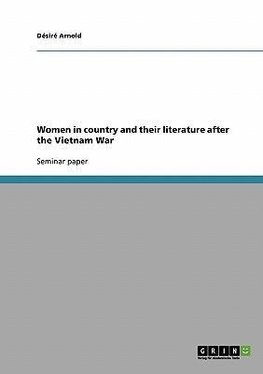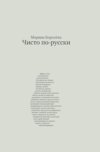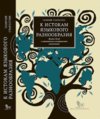
-
 Anglický jazyk
Anglický jazyk
Women in country and their literature after the Vietnam War
Autor: Désiré Arnold
Seminar paper from the year 2003 in the subject American Studies - Literature, grade: good, University of Potsdam (Institute for Anglistics/ American Studies), course: "After our war how will love speak", WS 03/04, 28 entries in the bibliography, language:... Viac o knihe
Na objednávku, dodanie 2-4 týždne
16.65 €
bežná cena: 18.50 €
O knihe
Seminar paper from the year 2003 in the subject American Studies - Literature, grade: good, University of Potsdam (Institute for Anglistics/ American Studies), course: "After our war how will love speak", WS 03/04, 28 entries in the bibliography, language: English, abstract: The Vietnam War originally was a civil war between the Southern and the Northern part of Vietnam. The USA started being involved in 1954. They tried to support South Vietnam. The Vietnam War ended in 1975, when the communist troops invaded the South Vietnamese city Saigon, the last American soldiers fled and Saigon capitulated without any conditions. The American aim of the war was to combat communism, as the Northern part of Vietnam was communistic. The US government feared more Asian states would fall to communism and similar battles would break out between the states (like the civil war between the two Vietnamese states); if they lost the war in Vietnam, this was called the Domino theory. During the Vietnam War about 7 Million tons of bombs were dropped and other devastations were caused by herbicides, like Agent Orange. During the Vietnam War about 55000 (concrete number below) American soldiers died, half of them weren't even 21 years old; many of them were blacks and/ or children of a working-class- family. All in all the Vietnam War cost 2,5 Million lives, 90% were civilians of South Vietnam, people that were to be protected by the US soldiers.
But not only men were in Country, "The U.S. Department of Veterans Affairs knows exactly how many men served in Vietnam (2,594,200) and how many were killed in action (58,188). It can furnish all kinds of stats about those soldiers, like the percentage of men who worked in supply (between 60 and 70 percent) as opposed to combat (30 to 40 percent). But ask about the women who served in Vietnam -- women other than nurses -- and the numbers disappear. The records are muddled, they say; the files don't work that way. Yes, the armed forces sent women to Vietnam, but an official record of their presence there doesn't really exist. At least 1,200 female soldiers were stationed in Vietnam in various branches of the military as photojournalists, clerks, typists, intelligence officers, translators, flight controllers, even band leaders. They served prominently in Saigon, in the Mekong Delta and at Long Binh, which was, for a time, the largest Army headquarters in the world. They could not fight, nor were they allowed to carry weapons to defend themselves. Most were part of the pioneering Women's Army Corps (WAC), created in 1942 to integrate the armed forces. All of them enlisted for service in Vietnam, mostly in the early part of the war. Like a lot of Vietnam veterans, these women have been dogged by their experiences in country; unlike many veterans, they do not feel officially recognized and have been reluctant to seek help. Some have been plagued by symptoms of post-traumatic stress syndrome and exposure to chemicals. Others have harbored the fact of their service like a shameful secret." (Bunn) "Women served in Vietnam in many support staff assignments, in hospitals, crewed on medical evacuation flights, with MASH Units, hospital ships, operations groups, information offices, service clubs, headquarters offices, and numerous other clerical, medical, intelligence and personnel positions.
- Vydavateľstvo: GRIN Verlag
- Rok vydania: 2007
- Formát: Paperback
- Rozmer: 210 x 148 mm
- Jazyk: Anglický jazyk
- ISBN: 9783638647496




 Nemecký jazyk
Nemecký jazyk 
 Ruský jazyk
Ruský jazyk 




